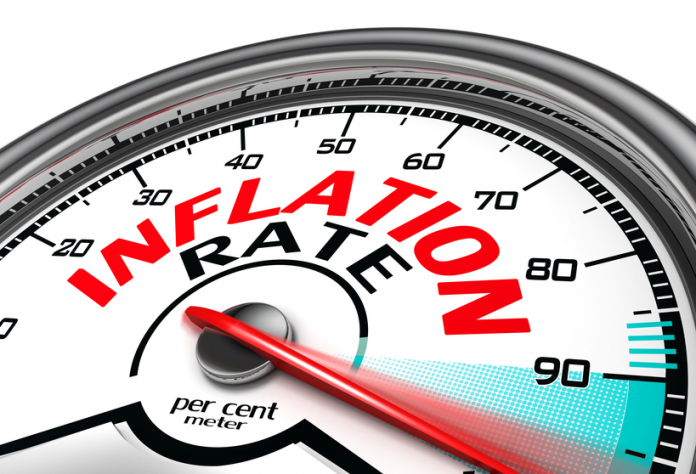Finance
December Inflation Predicted to Worsen to 35.20%
Published
12 months agoon

The inflation figure for December 2024 is expected to rise further on the back of price pressure.
This was revealed in the Cowry Weekly Financial Markets Review & Outlook published over the weekend, which projected that inflation would hit 35.20 per cent in December.
Read Also:
Nigeria’s inflation rate rose to 34.60 per cent in November 2024, according to the data reported by the Nigeria Bureau of Statistics in its last Consumer Price Index.
The figure marks a 0.72 per cent rise from the 33.88 per cent recorded in October 2024. The rise is largely driven by food price increases, which continue to place a strain on Nigerian households.
Inflation has continued to rise despite the hawkish stance of the Central Bank of Nigeria, which has seen it hike interest rates by more than 800 bps in 2024. At the close of the year, the benchmark interest rate was 27.50 per cent.
The analysts said, “Early projections from Cowry Research suggest a rise in headline inflation to 35.20 per cent, up from 34.60 per cent recorded in November 2024. This marks a continuation of the inflationary trend observed over the past months. The annual average inflation rate for 2024 is also expected to climb significantly, reaching 33.21 per cent, compared to 24.52 per cent in the preceding year, underscoring persistent price pressures across the economy.
“Several factors have contributed to this anticipated rise in inflation. The festive season played a critical role, as heightened demand for goods, services, travel, and accommodation during the holiday period exerted significant upward pressure on prices. This seasonal spike in spending added to an already challenging inflationary environment, driven by structural and economic issues.”
Highlighting some of the reasons inflationary pressures have proven resistant, Cowry Assets analysts stated, “Structural bottlenecks such as inadequate infrastructure, high energy costs, and logistical inefficiencies continue to undermine the effectiveness of monetary policy measures, leaving consumers and businesses grappling with escalating costs.”
The experts also warned that while inflationary pressures may begin to moderate in 2025 due to base effects, “the method of financing the Federal Government’s projected budget deficit of N13.08tn for 2025 could create additional inflationary pressure.”
It was added that the depreciation of the naira has remained a key factor fuelling inflation, as the weaker naira has increased the cost of imports, particularly affecting essential commodities and consumer goods. Additionally, energy costs have maintained their upswing following the removal of fuel subsidies, further compounding inflationary pressures.
Food inflation has also continued to be a major driver of overall inflation. In November 2024, it surged to 39.93 per cent year-on-year, compared to 32.84 in November 2023, and this trend was expected to persist into December. Imported food inflation has also seen a steady increase, reflecting the higher costs of commodities such as fish, rice, and dairy products due to global price trends and local currency challenges. Core inflation has equally exhibited an upward trajectory, reaching a historic high of 28.75 per cent year-on-year in November.
The disruption of agricultural production and distribution due to recurring insecurity and flooding in key farming regions has led to sharp increases in food prices.
Experts have maintained that the inflationary environment in Nigeria remains a cause for concern, with various economic, structural, and seasonal factors converging to push prices to record levels.
“The anticipated December inflation figures are expected to highlight the deepening cost-of-living crisis and the urgent need for targeted interventions to address these challenges,” the report indicated.
Meanwhile, the National Bureau of Statistics has revealed that it will release two CPI reports in January 2025. The December CPI expected on January 15 would be computed based on the old base year, while the second one for January 2025 would be computed based on the rebased year.
For the rebased CPI, the new reference periods are the weight reference period of 2023 and the price reference period (base year) of 2024.
In addition to the regular indexes in the CPI report, NBS has introduced three new indexes.
The head of the Price Statistics division at the NBS, Dr. Ayo Andrew, speaking on the rebased Consumer Price Index at a recent sensitisation workshop, said, “Apart from our normal headline inflation, core inflation, and food inflation, we are going to include in the new CPI rebased that will be released this January other indexes that have never been released before.
“Number one is the services index. At what rate are the prices of services in Nigeria increasing? People want to know about those figures in education and transport. NBS will bring that on board by the end of this month. Also, energy index, at what rate is price fluctuating in this sector? Farm produce index: What is the rate of price volatility of these products, and at what rate are prices of items in this sector moving? So these are the special indices that we are going to release at the end of this month.”
Source: Punch
Share this:
- Click to share on X (Opens in new window) X
- Click to share on Facebook (Opens in new window) Facebook
- Click to share on WhatsApp (Opens in new window) WhatsApp
- Click to share on Pocket (Opens in new window) Pocket
- Click to share on Telegram (Opens in new window) Telegram
- Click to email a link to a friend (Opens in new window) Email
- Click to share on LinkedIn (Opens in new window) LinkedIn
You may like


Nigeria’s Economy at a Crossroads: Rising Debts, Eased MPR, and Cost to Citizens


JUST IN: Nigeria Posts 4.23% GDP Growth in Q2 2025


Nigeria’s Inflation Eases to 20.12% in August as Food Prices Retreat


Capital Importation: Foreign Investors Stake Fresh $5.6Bn on Nigerian Economy


Nigeria’s Rebased GDP Reaches N372.8 Trillion in 2024


JUST IN: Nigeria’s Inflation Drops to 22.97%










